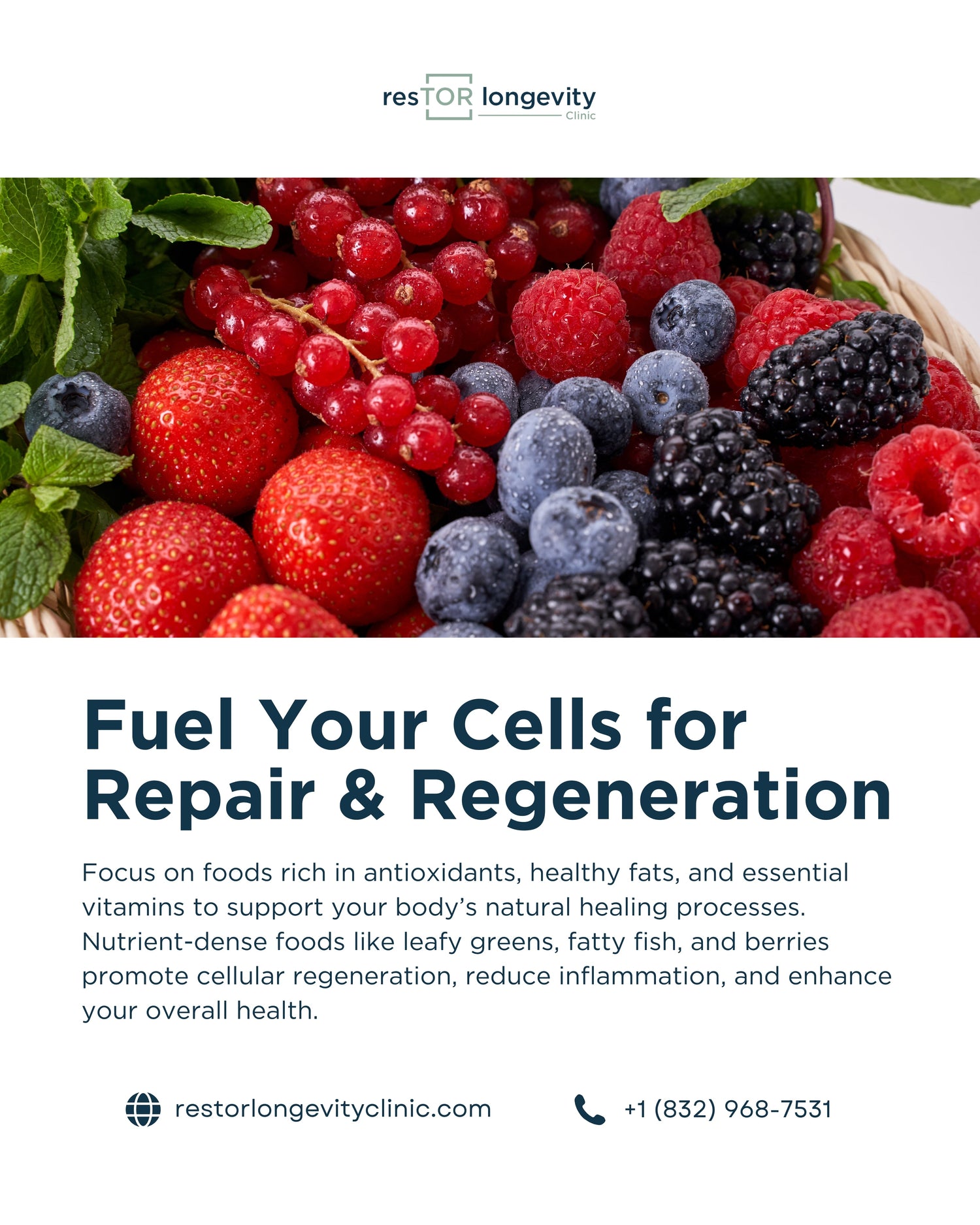Did you know that your cells are in a constant state of repair and regeneration? Every day, your body is renewing its cells, fighting off damage from stress, toxins, and aging. The quality of your diet plays a critical role in how well your cells can repair themselves. In this post, we’ll explore the nutritional factors that contribute to cellular health and longevity, focusing on foods rich in antioxidants, healthy fats, and essential vitamins. Discover how you can fortify your body’s natural healing processes and enhance your overall health through the power of food. We’ll dive into nutrient-dense foods and strategies you can adopt to promote cellular regeneration. By the end of this article, you’ll be equipped with practical knowledge to improve your cellular health and foster longevity.
Understanding Cellular Repair and Regeneration
Cellular repair is not just a buzzword; it’s the very foundation of a healthy life. Every minute, our bodies experience a myriad of cellular processes that require energy and nutrients for repair and regeneration. Cellular damage occurs due to several factors, including oxidative stress, inflammation, and environmental toxins. Identifying how to nourish our cells effectively is paramount to longevity.
The Role of Nutrition
The food we consume directly influences our cells’ ability to repair and regenerate. Nutrients act as the building blocks for cell health, facilitating vital metabolic processes, stimulating repair mechanisms, and providing energy. Incorporating specific nutrient-dense foods can significantly enhance cellular resilience and longevity.
1. Antioxidants
Antioxidants combat oxidative stress, which is when free radicals exceed the body’s ability to neutralize them. Foods rich in antioxidants, such as berries, dark chocolate, and leafy greens, help to minimize damage to our cells. These foods contain phytochemicals like flavonoids, polyphenols, and vitamins C and E, helping to stabilize free radicals. Incorporating a rainbow of fruits and vegetables into your diet ensures an array of antioxidants that support cellular health.
2. Healthy Fats
Healthy fats, particularly omega-3 fatty acids, play a role in reducing inflammation and enhancing cellular structure. Fatty fish like salmon, mackerel, and sardines are excellent sources of omega-3s. These fats are crucial for maintaining cell membrane integrity and function. Furthermore, other sources, such as walnuts and flaxseeds, can provide similar benefits. Incorporating these fats in moderation promotes cellular repair and optimal health.
3. High-Quality Protein
Protein is essential for the healing and rebuilding of tissues, making it vital for cellular regeneration. Quality sources like lean meats, legumes, eggs, and dairy provide amino acids that serve as the building blocks for new cells. Adequate protein intake ensures that your body has the necessary components to repair damaged tissues and build new ones effectively.
4. Vitamins and Minerals
Certain vitamins and minerals play crucial roles in cellular repair processes.
- Vitamin D: Supports immune function and can reduce inflammation.
- Vitamin C: Essential for the synthesis of collagen, which is vital for skin and tissue repair.
- Zinc: Involved in DNA synthesis and cellular division, promoting recovery and growth.
Incorporating a variety of foods rich in these nutrients into your diet will directly benefit your cell repair mechanisms.
Foods to Embrace
When considering a diet that fosters cellular health, focus on whole, nutrient-dense foods. Here’s a list of foods to embrace:
1. Leafy Greens: Spinach, kale, and Swiss chard are loaded with antioxidants and vitamins crucial for cellular health.
2. Berries: Blueberries, strawberries, and raspberries are powerful antioxidant sources that also reduce inflammation.
3. Fatty Fish: Salmon and sardines are rich in omega-3 fatty acids, essential for optimum cellular function.
4. Nuts and Seeds: Almonds, sunflower seeds, and chia seeds provide healthy fats alongside other micronutrients.
5. Whole Grains: Quinoa, brown rice, and whole wheat products offer fiber and essential nutrients contributing to overall health.
6. Fermented Foods: Foods like yogurt, kimchi, and sauerkraut support gut health and, by extension, help with inflammation control.
Establishing a Nutritional Blueprint for Cellular Health
To fully realize the benefits of a nutrient-centric approach, adopting a comprehensive plan is crucial. Here are some strategies:
- Meal Planning: Plan your meals to ensure they are rich in antioxidants, healthy fats, and proteins.
- Mindful Eating: Paying attention to what you eat enhances the connection between food and its effects on your body.
- Hydration: Adequate water consumption supports metabolic processes, including cellular repair.
- Monitor Portion Sizes: While nutrient density is vital, portion control helps in maintaining a balanced diet.
- Consistency is Key: Make it a habit to incorporate these foods into your meals regularly to witness changes over time.
Embracing a Lifestyle of Longevity
In addition to diet, lifestyle choices impact cellular health. Regular exercise, adequate sleep, stress management, and social engagement contribute to holistic well-being. By combining nutritious foods with a balanced lifestyle, you set the stage for prolonged health and vitality.
Actionable steps include:
- Engage in Regular Physical Activity: Exercise enhances circulation and supports cellular health by promoting detoxification and nutrient delivery.
- Prioritize Sleep: Quality sleep influences bodily recovery and cellular renewal. Aim for 7-9 hours of restorative sleep each night.
- Practice Stress Management: High stress can hinder cellular repair, make use of mindful practices like meditation, yoga, or deep breathing exercises to manage stress levels effectively.
Conclusion: The Path to Longevity Starts with You
Now that you understand how vital nutrition is for cellular repair and longevity, what changes can you make at home? Are you ready to embrace a more nutrient-dense diet? By focusing on the foods we eat, we can enhance our body's ability to repair, rejuvenate, and thrive. Start by incorporating nourishing foods today and witness the benefits elevate not only your cellular health but overall well-being. For personalized plans or guidance on nutritional interventions to improve your health, book a consultation with us. Remember, every small step contributes to a healthier, longer life. What will you do today to fuel your cells?



